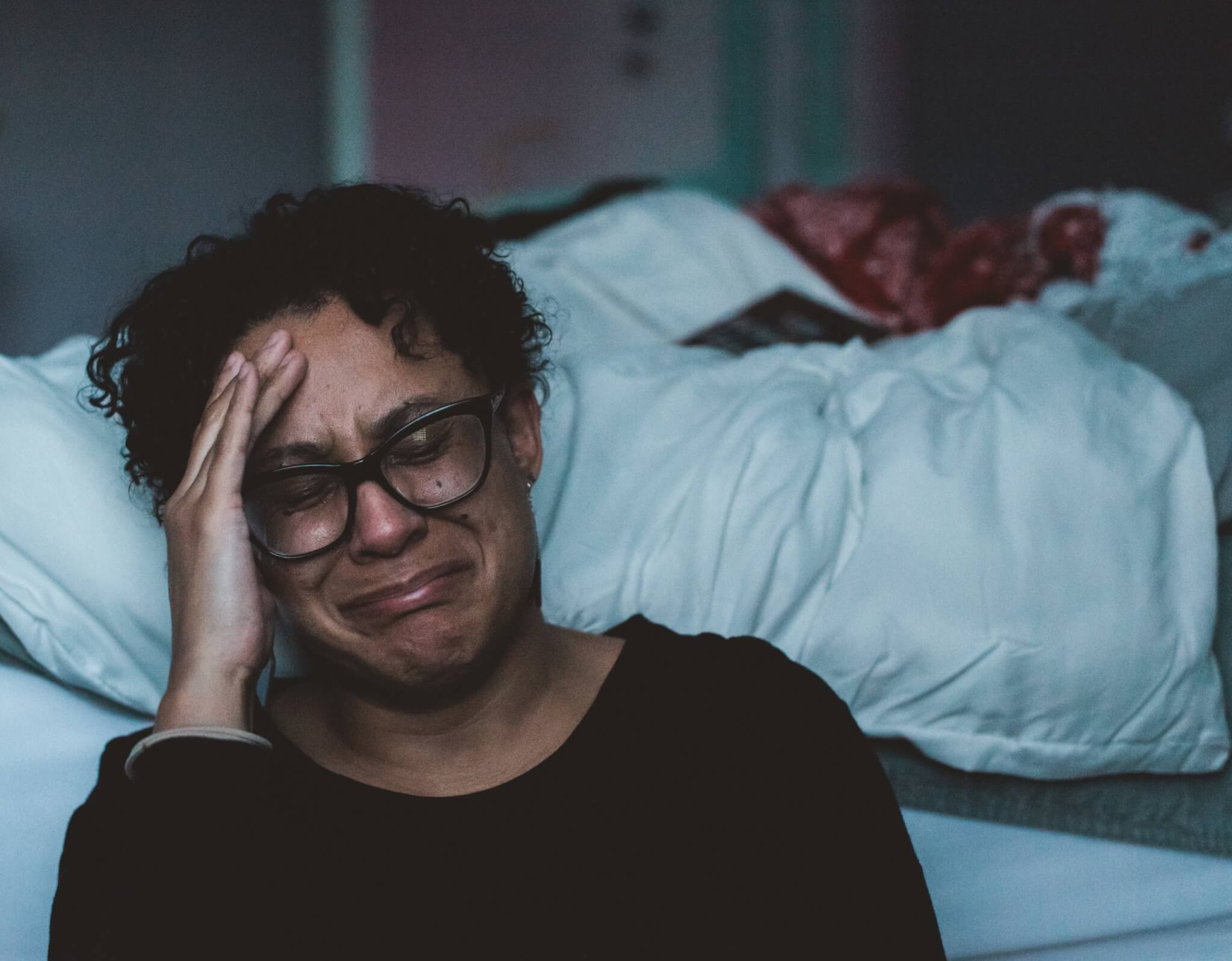Miscarriage is a common woman’s health experience, but one that affects people differently. Ten years of studying miscarriage has taught me that no two women will have the same experience, and that the same woman is likely to experience separate miscarriages very differently.
There’s also a great deal of variation in types of miscarriage and a lack of understanding of this, which often leaves women adrift.
A miscarriage is the loss of a pregnancy during the first 23 weeks. It’s estimated that one in five pregnancies end in miscarriage, with most occurring in the first 12 weeks. My research focuses on these early miscarriages.
Approximately 1 in 100 women in the UK experience recurrent miscarriage, which is defined as having three or more miscarriages consecutively. And black women in the UK are 43% more likely than white women to experience a miscarriage.
Vaginal bleeding which may be followed by pain in the lower abdomen and cramping are the main signs of a miscarriage. However, 1-5% of pregnancies end in a missed miscarriage: when no pain or bleeding occurs despite the pregnancy not progressing.
This is typically diagnosed by an ultrasound. For a number of the women I interviewed, this happened at their routine 12-week scan. It can be a shocking, unexpected and distressing experience – as Shirley explained: “I went for my scan at the [hospital] and we saw a very small fetus. I was chatting away and then the sonographer said, ‘I have bad news’ – and they told us the baby had passed away at ten and a half weeks.”
Nicole described being “gobsmacked” when she was told at her 12-week scan that “there was a sac but nothing else.” She continued: “To me, a miscarriage is when you bleed and have cramps, but I had none of that. I had no idea what a missed miscarriage was … I had no idea the pregnancy had ended.”

The 12-week rule
Many of the women I interviewed spoke about the unwritten “12-week rule” of not disclosing a pregnancy until after this point, in case of complications or loss. But following a miscarriage, many women described this wait as being an unhelpful tradition which left them feeling isolated, as family and friends didn’t know what they were going through.
For Nicole and Shirley, there was certainty about the pregnancy ending, but this isn’t always the case. For some women, a diagnosis of miscarriage may be more drawn out.
Grace went to an Early Pregnancy Assessment Unit when she experienced pain during early pregnancy. She had not experienced any bleeding, but had a feeling that things “weren’t quite right”. An ultrasound was unable to locate the pregnancy. She was told her dates might be out and it might be too early to identify the pregnancy, or that it might be a miscarriage. She explained what happened next: “I had a [hormone] test and the levels [indicated] that I was lower in weeks than my actual dates … I had to go back two days [later] and have another test done.”
The second blood test revealed that her pregnancy was not continuing, and Grace later miscarried.
Physical impact
Miscarriages are often understood to involve cramping and bleeding followed by the spontaneous expulsion of the fetus or pregnancy tissue. But this scenario rarely, if ever, happened to the women I interviewed. Indeed, miscarriages are often drawn out over days, weeks or even months.
When Miranda first contacted me, she said: “My missed miscarriage was identified quite early, at approximately seven to eight weeks … [but] the process has taken nearly three months.”
When I first interviewed Miranda, she was still undergoing her miscarriage and did so for six months in total. While her experience is unusual, it illustrates how varied miscarriages can be.
Women are often told a miscarriage”“will be like a heavy period,” yet most of the women I interviewed said that this is woefully inaccurate. Grace said: “This whole idea of a heavy period was not my experience. I was having contractions [and] passing a lot of blood.”
‘I blame myself’
Many of the women I spoke with felt responsible for their miscarriage, as Liv described: “I still blame myself … I’ve had doctors, nurses, family, friends and everyone tell me not to blame myself, but I think I [always] will.”
Anxieties about fertility and future reproduction were common, as was apprehension during subsequent pregnancies. Marianne told me: “I felt really anxious, especially between finding out I was pregnant at ten weeks and feeling the baby kick for the first time.”

I had this real sense that there was something wrong with me.
I’m faulty and I can’t do what women are supposed to be able to do … You just feel fundamentally broken as a woman.
However, some women, such as Ruth, also expressed relief following a miscarriage: “I would have had a medical termination. I’m really glad I didn’t have to … I feel very relieved that it has happened this way.”
Views of miscarriage
In the Early Pregnancy Assessment Unit where I was based, after a miscarriage women are offered access to specialist counselors – a service many made use of and found helpful in navigating their feelings of loss and grief.
The recognition of the way miscarriage affects those who experience it is very welcome because in the past, miscarriage was seen as an unfortunate if routine event – but one that women would and should recover from quickly.
However, over the past 30 years, miscarriage has progressively been framed as the loss of a baby for which the appropriate response is one of bereavement. While many women I interviewed did, indeed, experience grief and distress in the face of their loss, not all did.
This is important because over the 10 years I’ve been researching miscarriage, I’ve become concerned that this latter group of women are not served by current clinical and public approaches to pregnancy loss. At times, this results in women feeling as though there is something wrong in the way they are experiencing their miscarriage.
This is why it’s important to recognize that, just as the physical experience of miscarriage varies, so too do the emotional and psychological experiences.![]()
Article written by Susie Kilshaw, Associate Professor in Medical Anthropology, UCL
This article is republished from The Conversation under a Creative Commons license. Read the original article.
